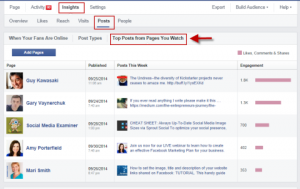 For many dreamers, creatives, entrepreneurs, and “big picture” types, acronyms like SEO and SERP are enough to make the eyes glaze over. Still, there’s no denying that a baseline knowledge of how Google evaluates, qualifies, and displays content is essential for anyone trying to build a brand online.
For many dreamers, creatives, entrepreneurs, and “big picture” types, acronyms like SEO and SERP are enough to make the eyes glaze over. Still, there’s no denying that a baseline knowledge of how Google evaluates, qualifies, and displays content is essential for anyone trying to build a brand online.
A new infographic from Marketing Signals outlines a brief history of Google’s two major recent updates, Panda and Penguin. (If you really want to get deep into this stuff, follow Moz’s Google Algorithm Change History.) See the bottom of this blog post for the full infographic.
Panda & Penguin 101
Panda and Penguin are names Google has given to two of their major search engine updates. These updates include an unknowable number of algorithm changes that share a common goal of prioritizing high quality sites. On the whole, they limit the effectiveness of SEO tricks and cheats. Instead, they honor content that is original, valuable, popular, authentic, and authoritative by awarding it with the top slots in search engine results.
Google is constantly adjusting its algorithms, only informing the public when those changes are expected to be big enough to significantly impact the way most websites are built and updated. Worried? Don’t be. It’s rare for high quality sites to be hurt by these updates.
What Does Panda Not Like?
- Poor, thin content with little value.
- A high ratio of ads to content.
- High amounts of duplicate content.
According to Marketing Signals, “Panda aims to increase the quality of content delivered to users when they search. Trustworthy, well-written content with high value ranks higher because it provides better information than ‘content for content’s sake.’”
What does Penguin Not Like?
- Use of spam tactics to increase rankings.
- “Black Hat” SEO including keyword stuffing and link farming.
- High amounts of low quality
- Excessive exact match anchor text.
According to Marketing Signals, “Penguin encourages the creation of a diverse web of links to and from high quality sites that, like content, provide value to users.
10 Things You Can Do to Make Your Site Panda/Penguin-Friendly
- Focus on high quality content on all your site pages.
- Write for people, not for search engines.
- Make sure keywords are organic.
- Make it easy to share your content to social.
- Limit ads.
- Make your site fast, responsive, and easy to navigate.
- Have a site map for search engine robots.
- Encourage social signals.
- Create communities that encourage interaction and build brand loyalty.
- Last, and certainly not least, learn to live and breathe the Law of Authenticity.
I’ve written in the past about how to create authentic content and hone your authentic “social media voice” (which should be the same as all of your “voices” – online and in-person). Check out that post, here: “How to Create Content That Looks, Feels, and IS Authentic.” What are your thoughts on authenticity in social media and websites? I’d love to talk in the comments section below!
(315)
Report Post








